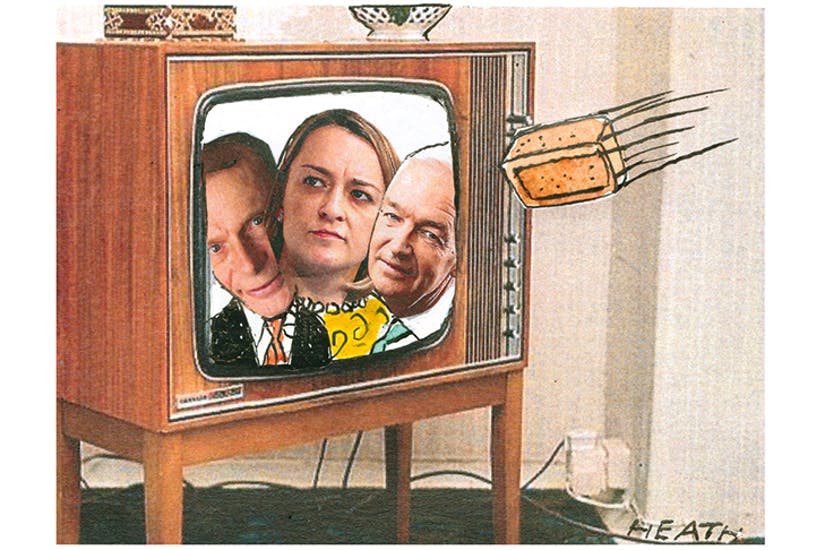It’s an unfashionable thought, but having spent many hours in the university sports hall where constituency votes for Boris Johnson and John McDonnell were counted, I feel freshly in love with democracy. There they all were, local councillors and party workers from across the spectrum; campaigners pursuing personal crusades, from animal rights to the way fathers are treated by the courts; eccentrics dressed as Time Lords. In the hot throng, there were extremists and a few who seemed frankly mad. But most were genial, thoughtful, balanced people giving of their free time to make this a slightly better country. Stuck in Westminster during relentless parliamentary crises, it’s easy to lose sight of just how energising real democracy is. I came home with my cynicism scrubbed off, and exhausted-refreshed.
However, I hadn’t seen the size of the Tory majority coming. All through the campaign, I’d felt instinctively we were heading for a Boris Johnson victory, but with a modest Tory majority. Thinking back, I’m sure I was over-influenced by social media. Conservative messages on Twitter and Facebook seemed unimaginative and repetitive, while the left was ingenious, starry, witty and emotional. But more than that, I think the online campaign made screen junkies too easily impressed by strange, vivid, eye-catching episodes, which passed most normal people by.
Many of them were to do with the Prime Minister himself: briefly pocketing a reporter’s phone to avoid an embarrassing picture; declining to be interviewed by my colleague Andrew Neil; and apparently hiding in a fridge. In each case, addicted Twitterati thought them emblematic, even turning-point truths, and assumed that the nation was transfixed. But millions of voters probably found them trivial, or smiled briefly — if they noticed them at all. They were thinking about the simpler messages Twitter passed over. One of the common qualities among journalists is a short attention span. During this election, it became for us a crippling disability.
If that’s true, though, don’t the party campaigns, so focused on bogus publicity moments, also have a lot to answer for? I would imagine that being prime minister is quite an important and testing job. So, was it really necessary for Conservative Central Office to send Boris Johnson to wrangle heifers in Aberdeenshire, dangle codfish in front of photographers and deliver early-morning milk to bleary, pre-prepped householders? Really, what was that all about? Did any of the frantic criss-crossing of the country, the bogus rallies and media scrums, change any minds at all? Or was it, perhaps, displacement activity for a political class sitting nervously in the waiting room?
This article is an extract from Andrew Marr’s Notebook, which appears in The Spectator Christmas issue






Comments